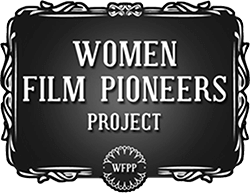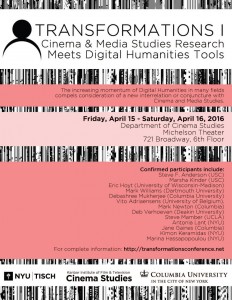Conference: Doing Women’s Film and Television History III: Structures of Feeling, May 18-20, 2016
Doing Women’s Film and Television History III: Structures of Feeling
May 18-20, 2016
Leicester, UK,
Keynote speakers: Miranda J Banks, Melanie Bell, Shelley Cobb, Kate Dossett, Jane Gaines, Michele Hilmes, Linda Ruth Williams
Building on the success of the previous two ‘Doing Women’s Film and Television History’ conferences, this three-day international conference will bring together academics, archivists, curators and creative practitioners to explore current developments in researching and interpreting the history of women’s activity in and around cinema and television.
The central theme of this edition, ‘Structures of Feeling,’ is derived from the work of Raymond Williams on social change, and commemorates the 40th anniversary of the 1975 publication of Patterns of Discrimination Against Women in the Film and Television Industries by the Association of Cinematograph, Television and allied Technicians (ACTT) union’s Committee of Equality. Such reports are invaluable because they identify the ways in which women’s work in ‘below-the-line’ roles have been undervalued as well as highlighting the policies, practices and assumptions of the industries that keep gendered hierarchies in play. Crucially they also make visible the largely ‘invisible labour’ of cinema and television that is carried out by women.
While these ‘jumping-off’ points explore women working in UK production contexts, Doing Women’s Film & TV History III, like its predecessors, is international in scope and the conference will explore the ‘structures of feeling’ of women working in different national system of film and television production across diverse historical periods. The conference will also address the various critical and historiographic tools that can be utilised to bring women’s ‘structures of feeling’ in film and television history to view.
Doing WFTHH III is organised by the UK Arts and Humanities Research Council funded project, ‘A History of Women in the British Film and Television Industries,’ in association with the Women’s Film & Television History Network: UK/Ireland.
For more information and the conference schedule, visit the conference website.

